The Global Town Hall with the theme “Managing Competition, Conflict, and Cooperation in a Pandemic World” took place on November 20-21, 2021. The virtual conference was hosted by the Foreign Policy Community of Indonesia (FPCI) with an international consortium of think tanks from various countries. H.E. Wang Yi, State Councilor and Minister of Foreign Affairs of the People’s Republic of China, delivered a keynote speech at the opening ceremony of the conference. As this event’s knowledge partner, the Center for International Security and Strategy (CISS) at Tsinghua University had our experts, Senior Col. (Ret.) Zhou Bo, Senior Fellow at CISS, and Major General (Ret.) Dr. Yao Yunzhu, Academic Committee Member at CISS, participated in Session 3 entitled “The Future of Afghanistan and Its Impact on Regional Security” and Session 4 entitled “The Geopolitics of Competition and Alignments” respectively.
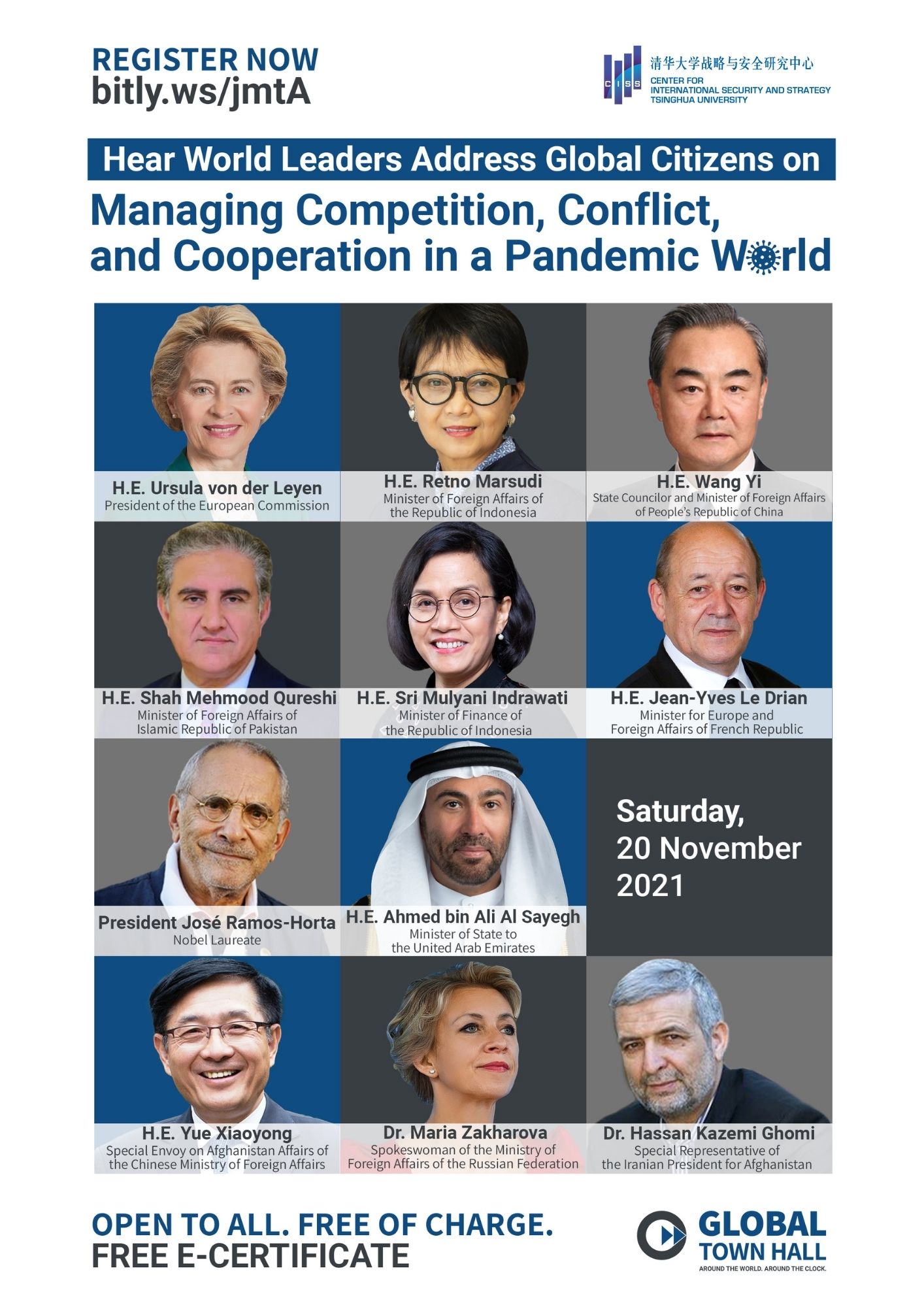
GTH2021
Session 3 was moderated by Professor Harsh V. Pant, Director and Head of the Strategic Studies Program at the Observer Research Foundation, featuring panelists including H.E. Yue Xiaoyong, Special Envoy on Afghanistan Affairs of the Chinese Ministry of Foreign Affairs; Dr. Hassan Kazemi Ghomi, Special Representative of the Iranian President for Afghanistan; H.E. Amar Sinha, Distinguished Fellow at Research and Information Systems for Developing Countries and former Indian Ambassador to Afghanistan; Mariam Wardak, Co-Founder of “Her Afghanistan” and former Strategic Communication and International Relations Adviser to the Afghan National Security Advisors; and Dr. Lana Ravandi-Fadai, Associate Professor at the Russian State University for the Humanities. The panelists discussed issues including the impact of the US withdrawal on Afghanistan, the evolution of regional security, Afghanistan’s challenges and opportunities, the Taliban government’s foreign and domestic policies, support and humanitarian aid from other countries, and counter-terrorism cooperation.
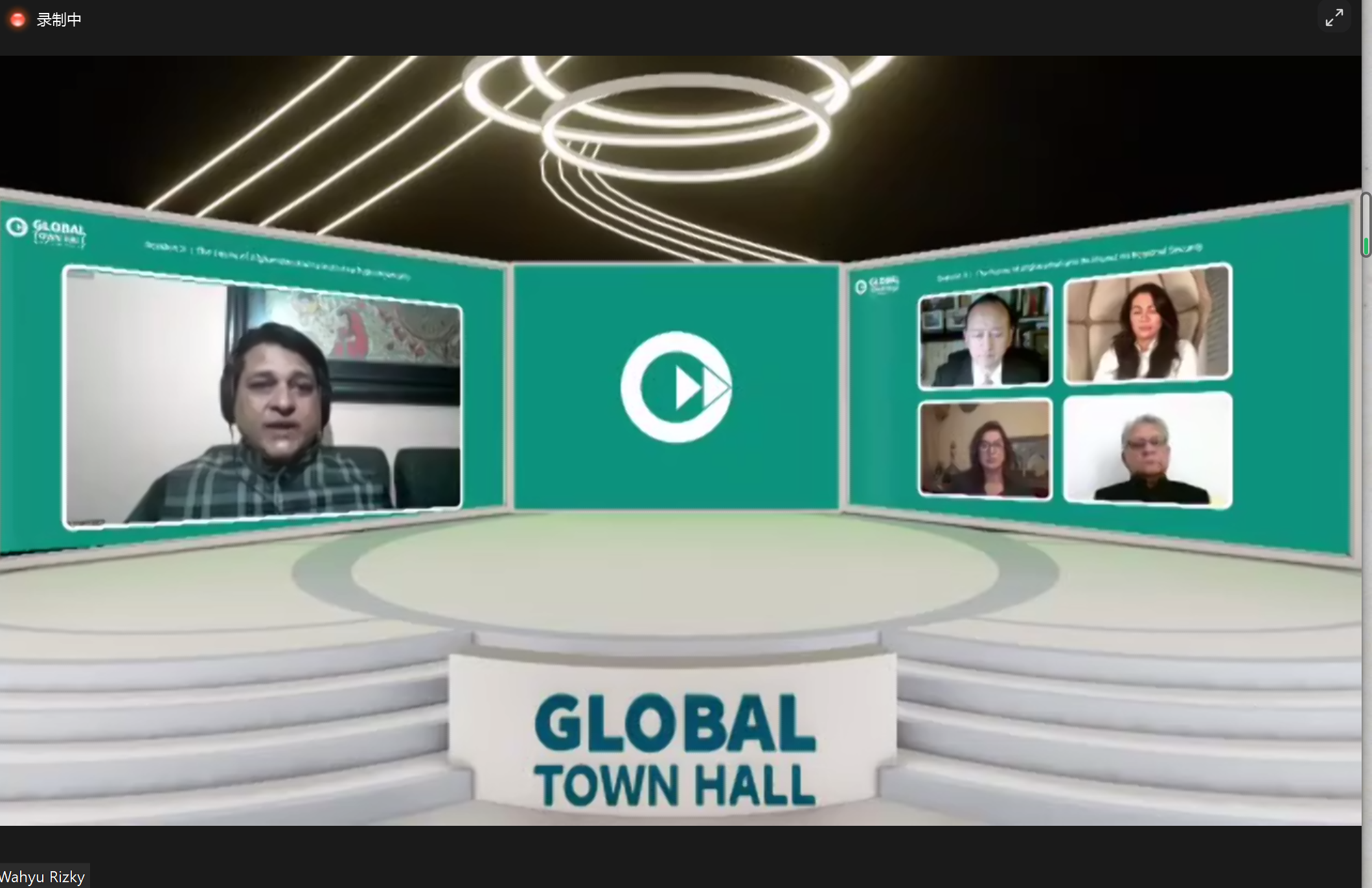
Panel discussion in Session 3
Col. Zhou Bo began his speech by expressing regret that the US had frozen Afghan assets and pointed out that the real obstacle to solving the Afghan issue is the attitude of the West. The Taliban government in Afghanistan has taken gradual steps in improving its political tolerance, and it should be given some more time, he said. As a friendly neighbor of Afghanistan, China is willing to join hands with the international community in providing support to the country, especially in maintaining social stability and advancing industrialization and infrastructure construction. The Shanghai Cooperation Organization can also play an important role in countering terrorism and rebuilding regional security, Zhou added. When answering questions from the audience, he noted that China and the US can seek cooperation in counter-narcotics and counter-terrorism actions to achieve a “soft landing” on the Afghan issue.
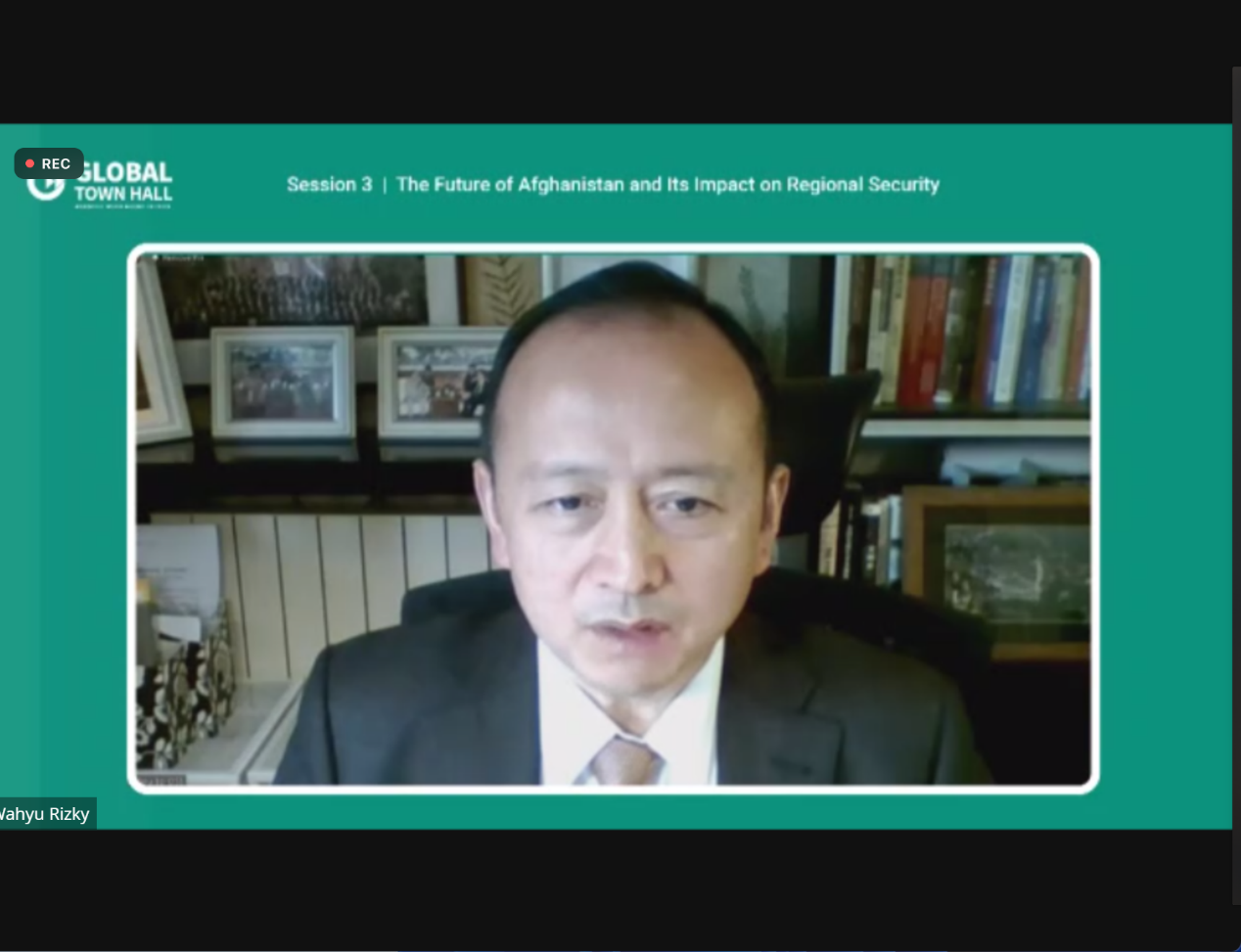
Remarks by Zhou Bo
Session 4 was moderated by Dr. Rommel C. Banlaoi, Chairman and Executive Director of the Philippine Institute for Peace, Violence, and Terrorism Research. Among the panelists were Dr. Ebtesam al-Ketbi, Founder and President of the Emirates Policy Center; Professor Stephen Smith, former Minister of Defense and former Minister of Foreign Affairs of Australia; Fyodor Lukyanov, Research Director of the Valdai Discussion Club and Chairman of the Council on Foreign and Defense Policy; and Professor Kishore Mahbubani, Distinguished Fellow at the Asia Research Institute at National University of Singapore. The panel looked at the rivalry and competition in today’s multipolar world, and explored the geopolitical trends and factors driving international cooperation and competition in the era of the pandemic as well as the implications of great-power strategic rivalries on the international community.
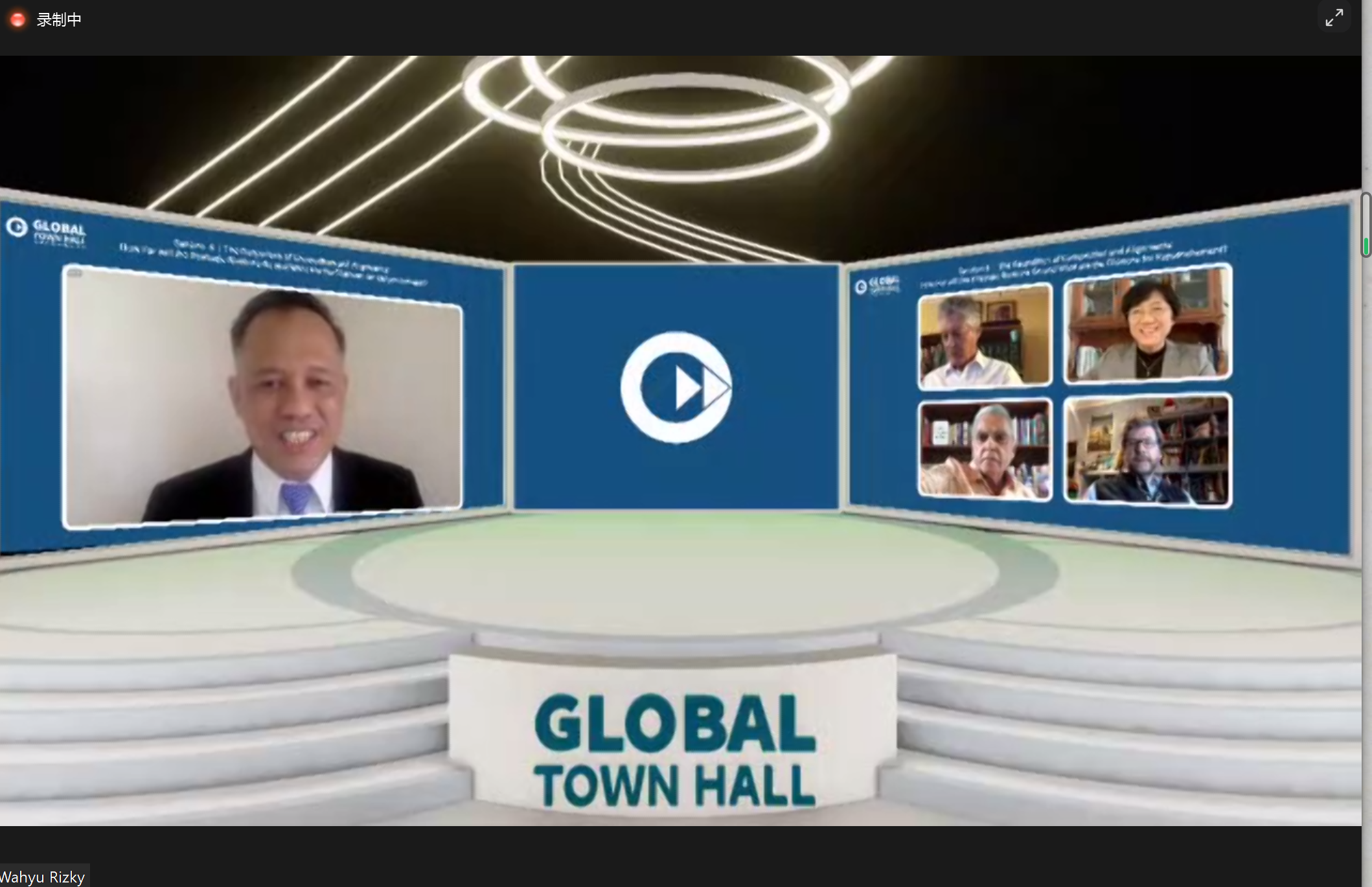
Panel discussion in Session 4
There are both division and integration in today’s international trends, and a new era has unfolded with the advancement of technology and digitalization, General Yao Yunzhu said. Through technology, we are seeing an unprecedented integration of people from different countries, of different ethnic groups and with different beliefs and ideologies, which has served as a crucial impetus for countries to address their internal affairs, promote international cooperation, and reach a global consensus. Yao stated that the international community should stop putting labels on China, and should instead cast aside the biases and open up their perspectives when looking at China’s rise. Instead of politicizing international issues such as climate change and the pandemic and using them against China, the West should work with China to address these global challenges in joint efforts. Only when the West switches from its traditional perspective on the rise of China to a rational and objective one can we achieve true mutual understanding and respect.
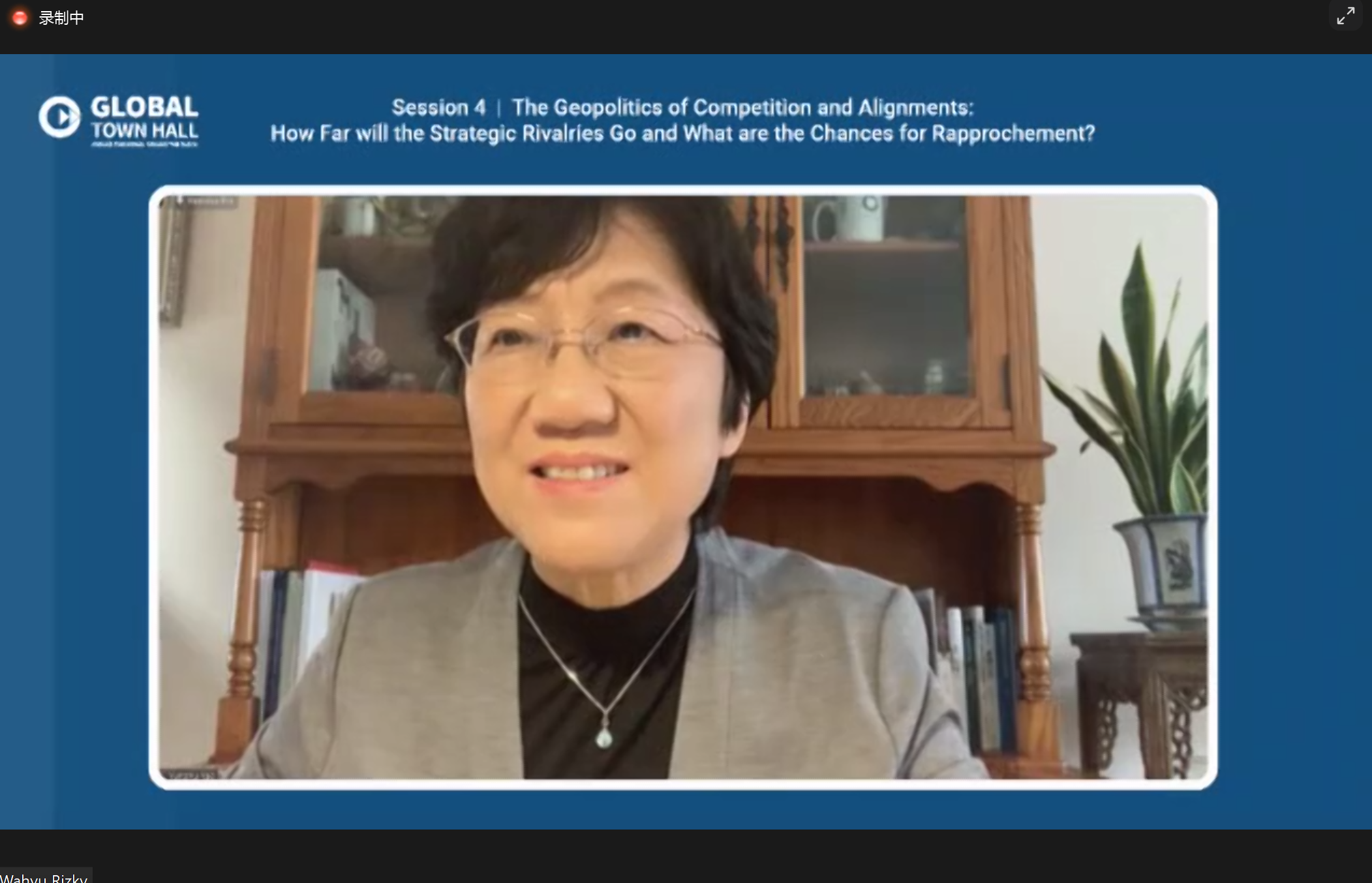
Remarks by Yao Yunzhu
The Global Town Hall 2021 was a marathon discussion where high-level experts across sectors met for discussion. It was watched by a global audience, covering time zones worldwide. The idea was to provide an independent platform to discuss the state of the world still grappling with the COVID-19 crisis, evaluate policy challenges and lessons learned, and gather ideas for future direction and discuss ways to rebuild the world economically, socially, environmentally, diplomatically, and even geopolitically.
